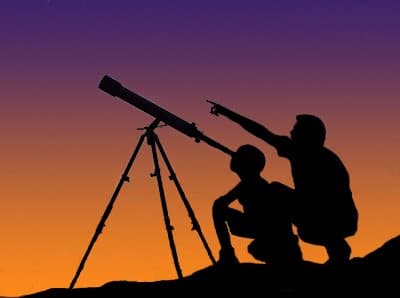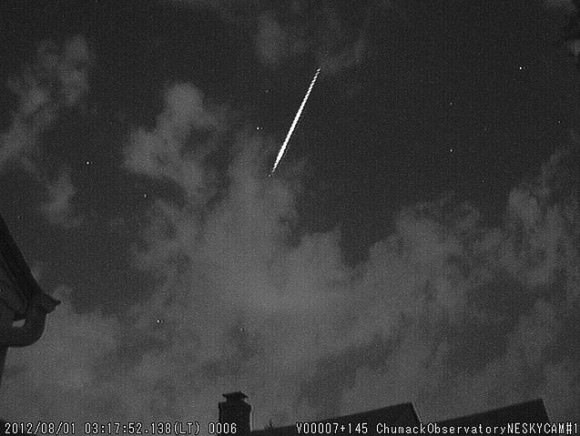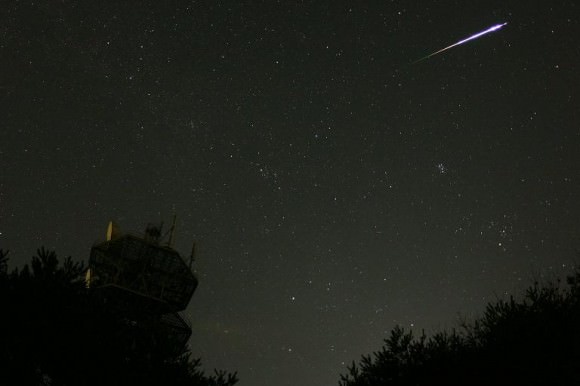Originally posted on Universetoday by Virtualastro
This will probably be the most simple and easiest guide to viewing the Perseids and other meteor showers you may possibly ever read. The reason why it is so simple is when you are outside you want to concentrate on looking for meteors and not worrying about technical details, which are unnecessary for the casual observer.
First, a LITTLE about the Perseids: The Perseid meteor shower is an annual event occurring every August. They are tiny particles of dust and debris from the tail of a comet (109P/Swift-Tuttle) which planet Earth encounters every year in its orbit around the Sun. When these particles collide with the Earth’s atmosphere, they burn up causing bright flashes and streaks in the night sky. These are known as shooting stars or meteors.
To see Perseids (shooting stars/meteors) we only need to do a few simple things.
- Plan when you want to look for meteors: Check timings and set aside a good hour or more for observing (away from bright lights if possible). Meteors seldom appear immediately so give yourself a good hour or more to see as many as possible. Late evening and after midnight is a good time for meteor hunting. One of the best time to look, however, is during the dark hours immediately before dawn. There are some good guides with timings, etc. on www.meteorwatch.org, NASA, or Universe Today’s weekly SkyWatcher’s Forecast
- Get comfortable: Dress warmly as even in August it can get chilly at night. Find yourself a good garden chair, deck chair, trampoline or place on the ground you can lay a sleeping bag or blanket, as the idea is for you to keep your gaze on the sky for as long as possible. Lying down on the ground or sitting on a reclining garden chair will make this much easier for you. Take with you food and drink to make the evening even more enjoyable.
- Where to look: A lot of guides will tell you to look in certain directions at certain times and be far too technical, this is totally unnecessary. All you need to do is look up and fill your gaze with sky for as long as possible (blink and you miss it). Meteors/shooting stars from meteor showers tend to appear randomly all over the sky, they will however originate from a point called the radiant which gives the meteor shower its name the Perseids radiant/point of origin is in the constellation of Perseus, hence the name. You don’t need to look in any particular direction, just look up.
- How to look: You do not need a telescope, binoculars or any other viewing aid; you only need your eyes.
- What to expect: Don’t expect to see the heavens raining down with fire. Expect to see one or more bright flashes/ streaks of light (meteors/shooting stars) every few minutes. The Perseids can deliver fifty to a hundred meteors per hour at their peak, which is just after the night of the 11th and 12th August through to the 13th and 14th August, be patient and you will see some. Occasionally you may be lucky to see an incredibly bright meteor known as a fireball, these are a real treat.
Enjoy yourself and keep looking up, the more you look up the more you will see. When you look away that’s when you miss the best meteor of the evening.
For further information and to join in with the worldwide #meteorwatch Follow VirtualAstro on Twitter and the Meteorwatch and VirtualAstro Facebook pages. follow @Virtualastronomer on Threads and @Virtualastro BlueSky also. There is also this simple guide to viewing meteors and many other helpful resources on this website.
Good luck!
2023 SHOWS
OCT 15
LONDON WIMBLEDON
NEW WIMBLEDON THEATRE
NOV 18
BRADFORD
ST GEORGES HALL
2024 SHOWS
FEB 24
MONMOUTH
BLAKE THEATRE
MAR 2
IPSWICH
REGENT THEATRE
MAR 10
SALFORD, MANCHESTER
THE LOWRY
MAR 17
SOUTHAMPTON
MAYFLOWER THEATRE
MAR 24
BRISTOL
REDGRAVE THEATRE
APR 7
BIRMINGHAM
THE ALEXANDRA THEATRE
APR 28
EXETER
EXETER NORTHCOTT THEATRE
APR 28
NOTTINGHAM
ROYAL CONCERT HALL
Visit The Night Sky Show website for more listings, planned shows and information.








